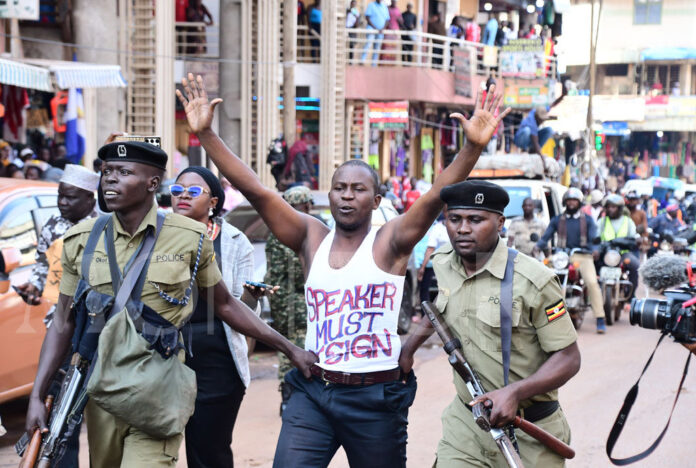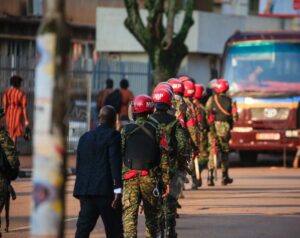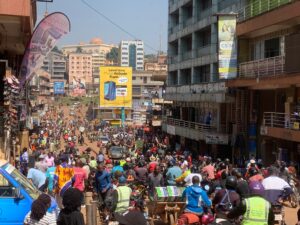
A number of youths have been arrested in Kampala following the march to parliament protests around the city. The protesters had intended to march to the parliament of Uganda in demonstration against the alleged increasing corruption in the country, citing the parliament as one of the most corrupt institutions.
According to the protesters, they had seven key demands, among them being the resignation of Speaker of Parliament Anita Among, the resignation of the four back bencher commissioners, reducing the number of Members of Parliament (MPs), and reducing the MPs’ salaries and allowances to Ugx 3 million, among others.
Among the arrested are NUP activists identified as Habib Buwembo, Sylivia Namutyaba, John Bosco Serunkuma, Maria Nataba, NUP head of institutions David Musiri, comedian Obed Lubega, also known as reign, KFM presenter Faiza Fabs, photo journalist Baron Edgar, blogger Benerd Ewalu Olupot, known as Beewol, and Doctor Thomas, known as Owishemwe on X, among many others.
On Monday, July 22, 2024, the Uganda police spokesperson, Kituuma Rusoke, warned protesters against any form of procession around the city center, for it could disrupt business and traffic.
“Following a thorough security assessment regarding the feasibility of a political procession, we advised the organizers and urged them to heed our counsel,” Rusoke said.

Rusoke further emphasized that the Uganda Police Force will not tolerate any disorderly conduct.
Speaking to Ruth Asiimwe, a civil society leader, human rights activist, and technical advisor at Youth Line Forum (a national youth NGO), the police used excessive force that wasn’t necessary while arresting some of the demonstrators.
“Uganda is known for contravening constitutional stipulations to the extent of changing them to a whim; it is not surprising that when young people spoke out on corruption, police came out with unnecessary force,“ Asiimwe said.
“More than seven armed policemen arrested one unarmed citizen for speaking facts; how unfortunate?” Asiimwe added.
As the demonstrations were ongoing, business went on as usual in most parts of town, save for Kituuma Rusoke around Parliament and Nakasero, where motorists were denied entry and those allowed to cross were checked thoroughly by secTurity before being allowed to proceed.

The March to Parliament protests stemmed from social media, especially on X, where activists starteðd with a Parliament exhibition that exposed alleged corruption in parliament and saw some MPs being investigated, arrested, and later arraigned in court on charges of corruption. Some of the arrested members were given bail, while others were sent to Luzira prison on remand awaiting a court hearing.














